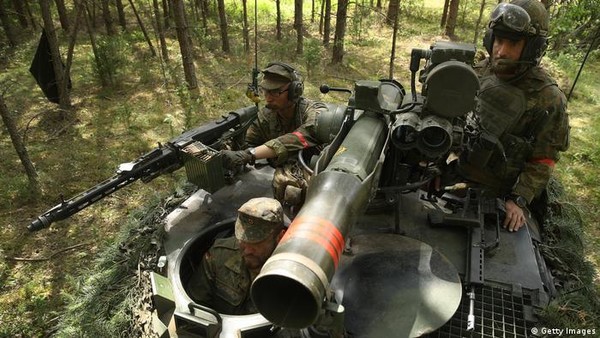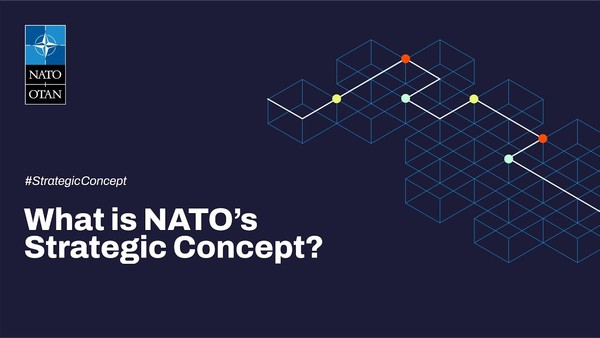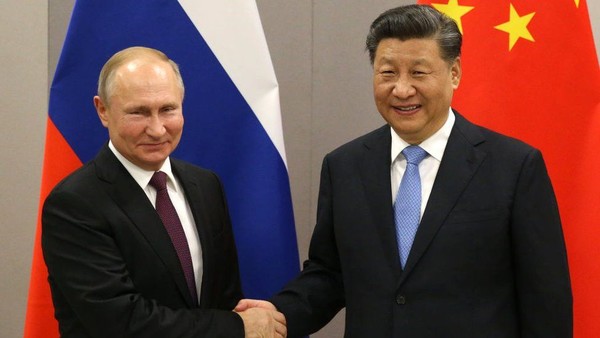
It’s been nine months since Russia began its invasion of Ukraine. Since the war began, there have been dynamic changes on the global security environment. At the North Atlantic Treaty Organization (NATO) summit held in June, allies discussed increasing defense spending. In August, the Associated Press (AP) wrote, “NATO leaders agreed […] to expand their efforts to get all alliance members up to the 2% of GDP mark.” Moreover, Sweden and Finland submitted their NATO membership applications, abandoning their decades of neutrality in response to Russia’s invasion of Ukraine. During such a rapid change in the global security environment, Germany is transitioning its foreign and security policies. Let’s take a look at the changes in global defense policies caused by the Russian invasion of Ukraine, focusing on Germany, and the advent of the successive New Cold War era.
History of the German Disarmament
After the first World War (WWI), Germany lost all its colonies and forfeited 13% of its territory. They were obligated to pay war reparations (US $23 billion which would be about $378 billion today) to the Allied governments by the Treaty of Versailles. As a result, Germany faced a harsh economic crisis which made all German people suffer. Since Germany was struggling with due to the economic problems, the Nazi Party and Hitler’s ideology had a chance to easily sway them. Germany declared rearmament in 1935 and started the second World War (WWII) by invading Poland. In the end, Nazi Germany unconditionally surrendered to Allied forces and disarmed again. After WWII, in 1949, when the Cold War between the United States and the Soviet Union was intensifying, the United States founded NATO to oppose the steadily progressing socialist camps of the Soviet Union and Eastern Europe. Germany was geopolitically important to prevent the expansion of the Soviet Union. However, Germany, a war criminal country, was divided and occupied into four sectors from 1945: Great Britain in the northwest, France in the southwest, the United States in the south and the Soviet Union in the east. As West Germany established a democratic system after division, the Western countries approved West Germany’s accession to NATO in 1955. Over the next five years, West Germany increased its military spending by nearly 5% of its GDP in response to the request from the United States and Western countries to increase its military budget. However, with the reunification of East and West Germany in 1990, Germany’s armaments declined sharply. Over the next 20 years, Germany spent $2.57 billion dollars for unification costs. Therefore, Germany’s overall economic conditions got worse. Germany had to cut its defense spending to cover the budget deficit, and in 2018, it cut defense spending to 1.2% of its GDP. Recently however, Germany abruptly declared rearmament beyond any expectations.
Germany Declared Rearmament
Germany, was criticized for showing a passive attitude in the early phase of the Ukraine war. The Times reported in May that "Germany [broke] its promise to give Kyiv more heavy weapons," and said Prime Minister Olaf Scholz had previously promised to deliver anti-tank and anti-aircraft weapons to Ukraine, but he was criticized by the concerned countries for not supporting heavy weapons. The Ukrainian capital Kyiv's mayor, Vitali Klitschko, said in a German newspaper Bild in January: “The behavior of the German government leaves me speechless. The defense ministry apparently hasn't realized that we are confronted with perfectly equipped Russian force that can start another invasion of Ukraine at any time.” Nevertheless, Germany declared its role as a complete geopolitical power through the decision to rearm. “It is clear that we must invest much more in the security of our country in order to protect our freedom and our democracy.” This is a policy statement made at the chancellery in Berlin by Olaf Scholz, Chancellor of the Federal Republic of Germany on February 27th. He announced that he would raise the defense budget to 2% of GDP from this year and declared that he would set up a special defense fund of 100 billion euros (KRW 130 trillion) for military and advanced technology. Kurt Campbell, the White House Indo-Pacific Coordinator endorsed Germany’s decision and said, “I think Germany is a deeply responsible nation, and memories of a distant period do not animate modern concerns of Europe.”
2022 NATO Summit: A New Cold War Has Begun

The NATO Heads of State and Government meeting in Madrid on June 29th approved a new Strategic Concept for the Alliance. This strategic concept is a document containing a new vision of how NATO will adapt to the changing security environment. The main keyword of this strategic concept was the threat of Russia and China. With the Russian invasion of Ukraine, NATO formalized the East-West border once again, which had been blurred over last 31 years. There is a growing public opinion that the era of the 'New Cold War' has arrived. Paragraph 33 of the 2010 NATO Strategic Concept stated that “NATO Russia Cooperation is of strategic importance as it contributes to creating a common space of peace, stability and security”, but this time it was expressed as “the most serious and direct threat”.
Reaction of China and Russia Toward Western Countries’ Rearmament

Against the rearmament movement of Western countries like Germany, Russia and China’s “anti-US solidarity” is growing. Last September, the Guardian said that Beijing sent more than 2,000 troops, more than 300 military vehicles, 21 combat aircraft and three warships to take part in military drills. This shows that the military unity between the two countries is getting stronger despite pressure from the west. Russia also showed support for China’s hardline response to US House Speaker Nany Pelosi’s visit to Taiwan. In August, Reuters said, “Russia backed China over an expected visit to Taiwan by U.S. House of Representatives Speaker Nancy Pelosi warning Washington that such a provocative trip would put the United States on a collision course with Beijing.” Currently, Russia, whose trade is blocked by Western sanctions, provides oil, gas, and weapon technology to China, and China is cooperating by providing daily necessities and high-tech products to Russia. Meanwhile, Xi Jinping, General Secretary of Chinese Communist Party and Russian president Vladimir Putin met at the Shanghai Cooperation Organization (SCO) Summit in Samarkand, Uzbekistan on September 15-16 and discussed future common front strategies. According to the September article of Times President Putin said, “The tandem of Moscow and Beijing plays a key role in ensuring global and regional stability.” In a kind of response, President Xi quoted, “In the face of changes in the world, times, and history, China is willing to work with Russia to reflect the responsibility of a major country, play a leading role and inject stability into a troubled and interconnected world.”
Germany’s unexpected declaration of rearmament shocked the international community. NATO allies are imposing sanctions on China and Russia for the war in Ukraine and are increasing defense budgets. Meanwhile, China and Russia are also responding to NATO by strengthening mutual solidarity. Attention is drawn to the future changes in the global security environment and the impact of Germany’s rearmament.

